A short story, written as a diary entry, describes a lockdown-specific encounter. Part of "Learning from COVID19: Reflections on knowledge-related commons and practices of self-organization amidst COVID19."
31. März 2020, ein Bericht.
Ich bemerke das fehlende rote Lämpchen erst, als auf meinem Bildschirm die Meldung aufpoppt, ich solle doch bitte meinen Laptop mit dem Strom verbinden. Ich stecke den magnetischen Stecker aus und wieder ein. Nichts.
Nochmals aus und wieder ein. Normalerweise erscheint erst das grüne und dann das rote Licht. Ich folge dem dünnen, mit Isolierband umwickelten Kabel zum Adapter und dann dem dicken Kabel zur Steckdose. Alles unverdächtig. Ich stecke aus und wieder ein. Nichts. Meine Brust wird eng und ich klappe meinen Laptop zu. Ich entferne den Adapter vom dickeren Stromkabel und beginne, das weisse Isolierband zu entfernen, das bei der Verbindung vom dünnen Kabel zum Adapter verdächtig dick ist. Nach einigen Zentimetern weiss kommt schwarzes Isolierband zum Vorschein und als ich auch dieses sorgfältig abgewickelt habe, sehe ich den Salat: Das Kabel hält sich an einem einzigen kleinen Fädelchen am Adapter fest. Fuck.
Mit dem Handy google ich die Symptome: Schlechte Diagnose. Da man Netdoktor nicht trauen sollte, rufe ich einen Freund an. Er bestätigt, was ich bereits geahnt habe: Mein Kabel ist tot. Meine Brust wird noch enger. 9% Akku verbleiben und zwei Wochen Lieferfrist (ohne Gewähr, weil in Zeiten von Corona) für ein neues Kabel. Ich werde nervös, suche nach meinen alten Logindaten für eine digitale Verkaufsplattform und filtere die Angebote für Zürich. Ich finde ein Kabel, zehn Franken günstiger als neu und am Abend abholbar. Ich einige mich mit dem Verkäufer auf 20.30 Uhr und Barzahlung. Schon während dem Abendessen denke ich mir Strategien aus, wie ich Social- Distancing auf höfliche Weise durchsetzen kann. Ich will einerseits nur ungern eine fremde Wohnung betreten, aber andererseits unbedingt das Kabel ausprobieren. Es ist das erste Mal seit langem, dass ich den direkten Umkreis meiner Wohnung verlasse. Es fühlt sich eigenartig an, als ich auf eine leere Langstrasse abbiege. Am Bankomat vis-à-vis vom Abholort und neben einem Kiosk desinfiziere ich erst seine Tasten, bevor ich Geld abhebe. Ich frage mich, ob sich die Banknoten auflösen, wenn ich sie auch mit dem Gel einreibe. Weil Geld ist ja bekanntlich etwas vom Schmutzigsten auf der Welt. Während ich überlege, werde ich von einer Frau angesprochen. Gibst du mir was davon ab? Ich weiche einen Schritt zurück, um zwei Meter Abstand einzuhalten. Sorry, kein Wechselgeld.
Das hat auch der Verkäufer zu mir gesagt, weshalb ich in den Kiosk nebenan flüchte und gleich zurechtgewiesen werde. Warten Sie bitte hinter der Absperrung! Ich lächle ertappt und die Verkäuferin entschuldigend. Ich bekomme Wechselgeld und werde vor dem Kiosk von der Frau von vorhin erwartet.
Wie siehts jetzt aus?
Ich fühle mich nicht wohl, bin überfordert. Ich fühle mich schlecht. Ich springe schnell über die Strasse — unnötig, weil kein Verkehr — und finde sogleich den Eingang zum Haus. Ich klingle. Warte vor der Tür!
Ich warte und werde noch immer missbilligend von der Frau beobachtet. Ich hebe entschuldigend meine Schultern und verberge das Geld fest in meinen feuchten Händen. Die Tür öffnet sich langsam und eine Hand reicht mir den Adapter. Er hängt an einem Verlängerungskabel.
Ich will nicht unhöflich sein und ich habe sicher auch kein Corona, aber man wisse ja nie. Ich nicke erleichtert, packe meinen Laptop aus und sehe erst das grüne und dann das rote Lämpchen aufleuchten.
Leg das Geld vor die Tür und gehe bitte. Einen schönen Abend!
Geschrieben von Gianna Rovere
Gianna Rovere
Gianna, Beobachterin und Beschreiberin von intimen Situationen und Szenen im öffentlichen Raum. Geboren 1995 im Luzerner Rottal. Lebte als selbsternanntes Stadtkind in Bern, Brüssel, Luzern und seit Kurzem in Zürich. Dort studiert und beschäftigt sie sich mit Kulturjournalismus, Kunstkritik, Elefanten und Namensvetterinnen.
Art On Demand - Radicalizing Access to Art in Times of Crisis
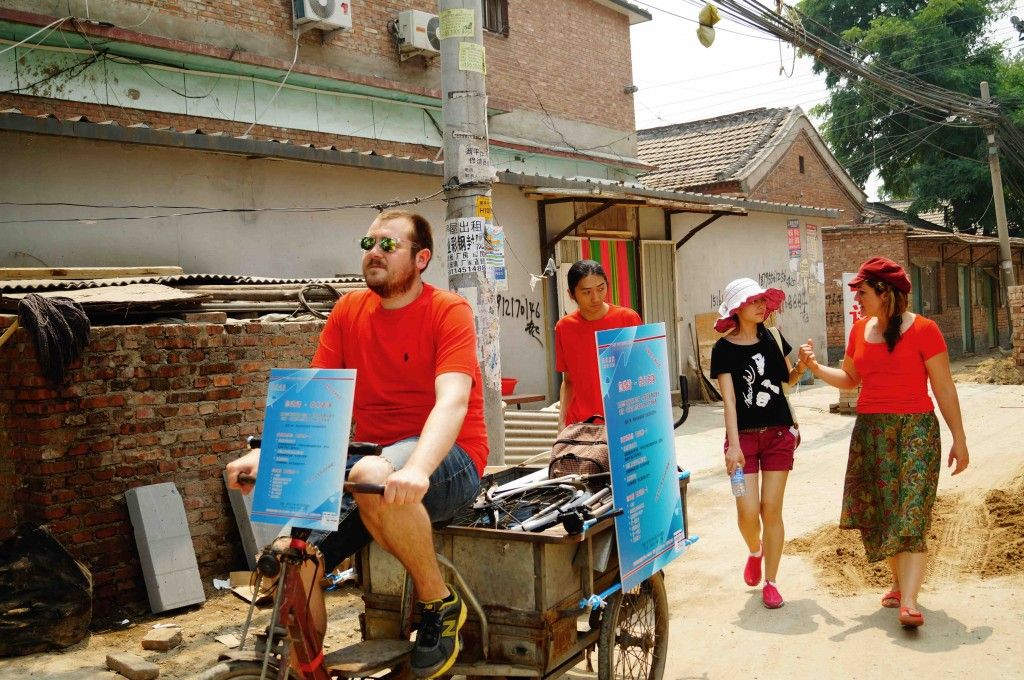
Art On Demand is a collaborative participatory project which creates a platform from and for artists, curators, writers, theorists and audiences to collectively share and experience the creation of and encounter with art. Part of "Learning from COVID19: Reflections on knowledge-related commons and practices of self-organization amidst COVID19." Read more
Prom.run

«Prom.run» is the publishing project that consists of a selection of materials that have inspired their practice as an art collective and addresses topics relating to self-organization and knowledge-related commons. Part of "Learning from COVID19: Reflections on knowledge-related commons and practices of self-organization amidst COVID19." Read more
Somebody

Centering the body without other bodies, Marquedant questions the parameters of being singular. Part of "Learning from COVID19: Reflections on knowledge-related commons and practices of self-organization amidst COVID19." Read more
A Conditional Construction in the Making

A text reflecting Morrison’s interests in discursive frameworks; performative platforms for critical enquiry; and ways in which we can facilitate and mediate multiple spaces for the generation of knowledge. Part of "Learning from COVID19: Reflections on knowledge-related commons and practices of self-organization amidst COVID19." Read more
dream#1 2020

This video work is a dreamy, haunting piece that looks at the role our personal stories play in the making of history, as well as the actual political potency of our feelings. Part of 'Learning from COVID19: Reflections on knowledge-related commons and practices of self-organization amidst COVID19.' Read more
I spat on it to put it back together
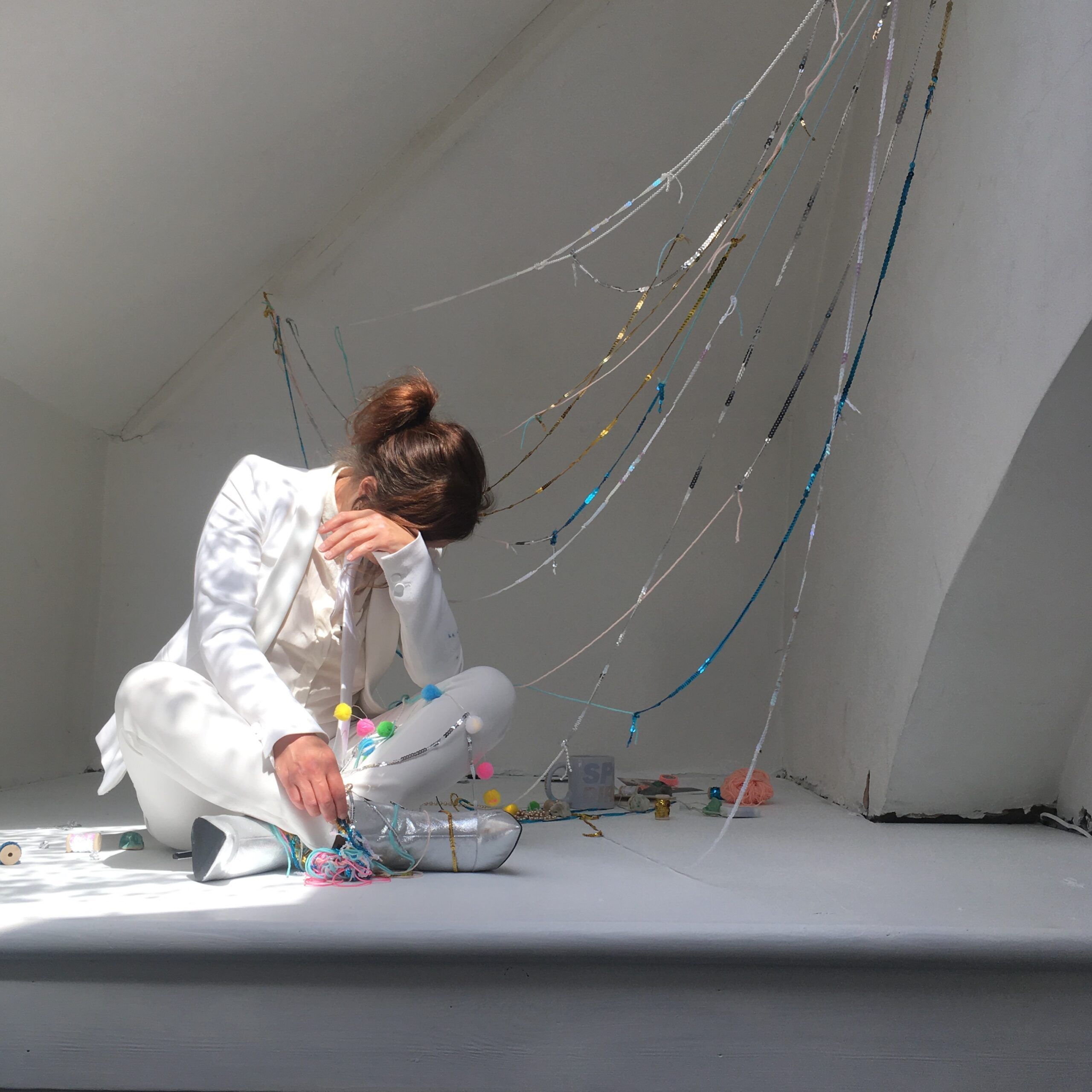
A self-conducted interview which offers insight into Price's practice and reflects upon the ways in which she positions herself both in her work as well as her community during the pandemic. Part of "Learning from COVID19: Reflections on knowledge-related commons and practices of self-organization amidst COVID19." Read more
The Coffee Commons

This essay reflects upon the divergent responses to and asymmetrical consequences of COVID19 in McBride’s home country, South Africa, and her country of residence, Switzerland. Part of "Learning from COVID19: Reflections on knowledge-related commons and practices of self-organization amidst COVID19." Read more
The Anatomy of DIY-Objects in an Epidemic Infrastructure
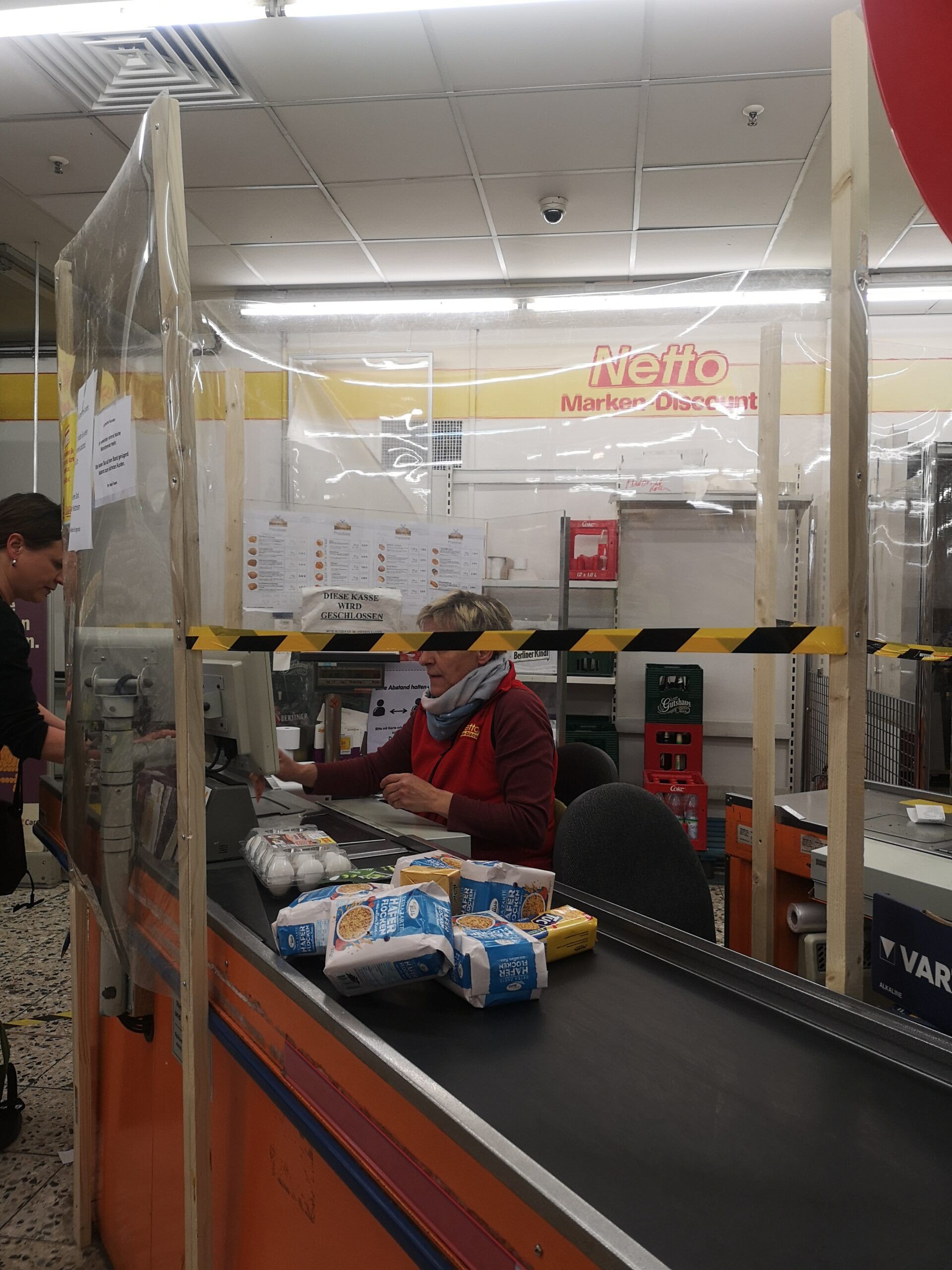
A short visual essay about the DIY infrastructures that pop up amidst a global pandemic. Part of "Learning from COVID19: Reflections on knowledge-related commons and practices of self-organization amidst COVID19." Read more
A short reflection on what COVID-19 teaches us about science

An essay which offers a welcome respite in thinking about the future of knowledge production and its rootedness in community. Part of "Learning from COVID19: Reflections on knowledge-related commons and practices of self-organization amidst COVID19." Read more
Bump Galaxy
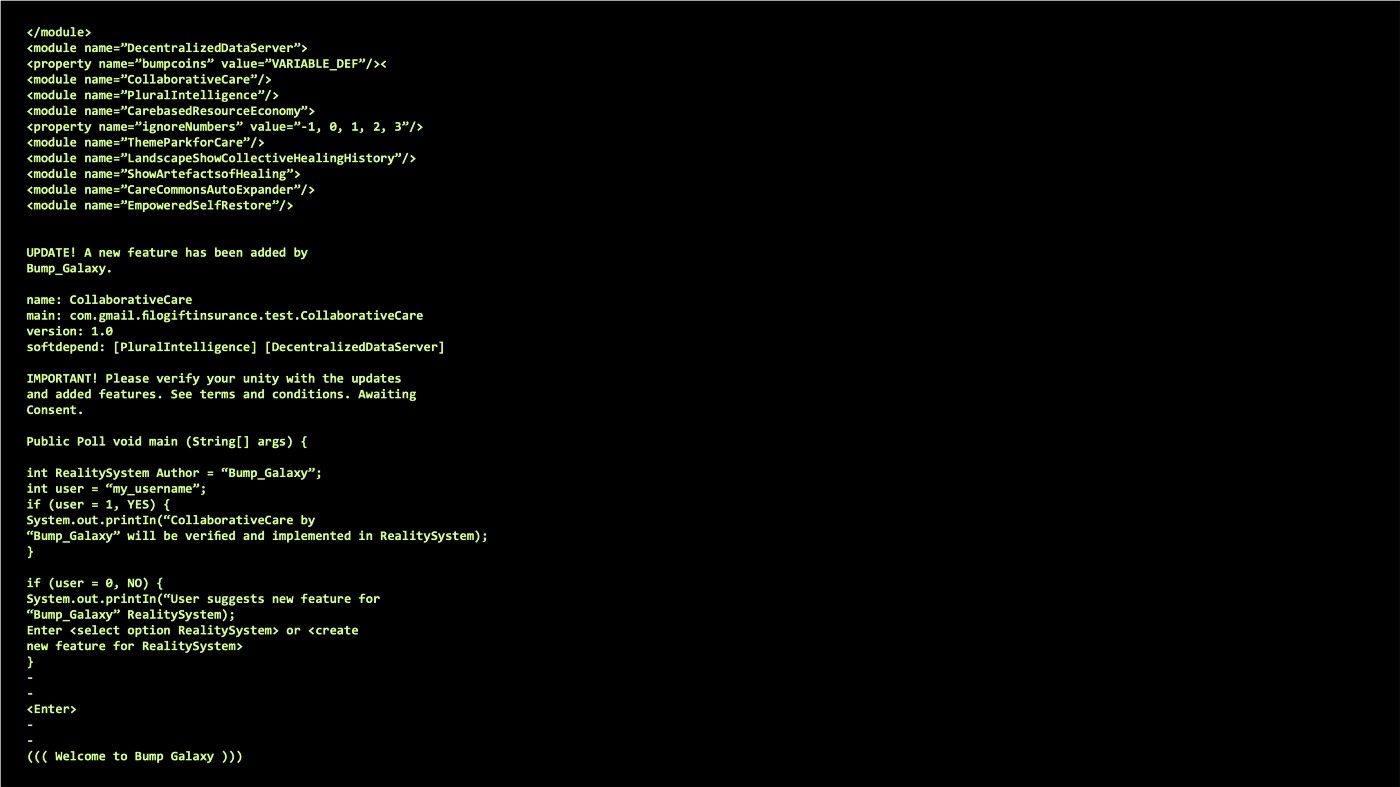
BUMP GALAXY is a virtual world and community for mental health. In it, players can visit several different Care Commons and engage with mental health professionals from around the world. Part of "Learning from COVID19: Reflections on knowledge-related commons and practices of self-organization amidst COVID19." Read more
A three-minute excerpt from springtime 2020
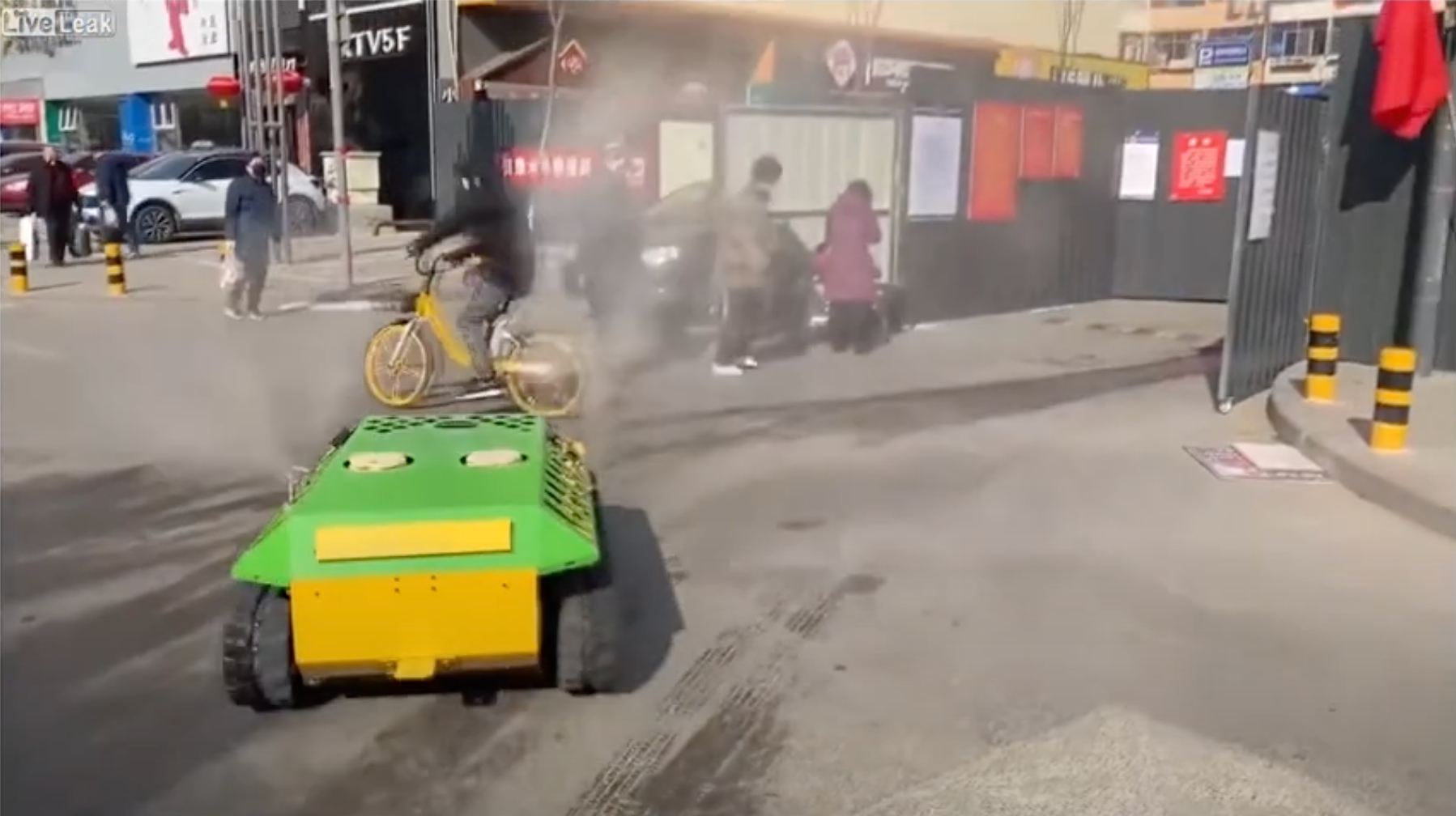
A collection of found footage from the lockdown period. Part of "Learning from COVID19: Reflections on knowledge-related commons and practices of self-organization amidst COVID19." Read more
Cuarentena Volumes I
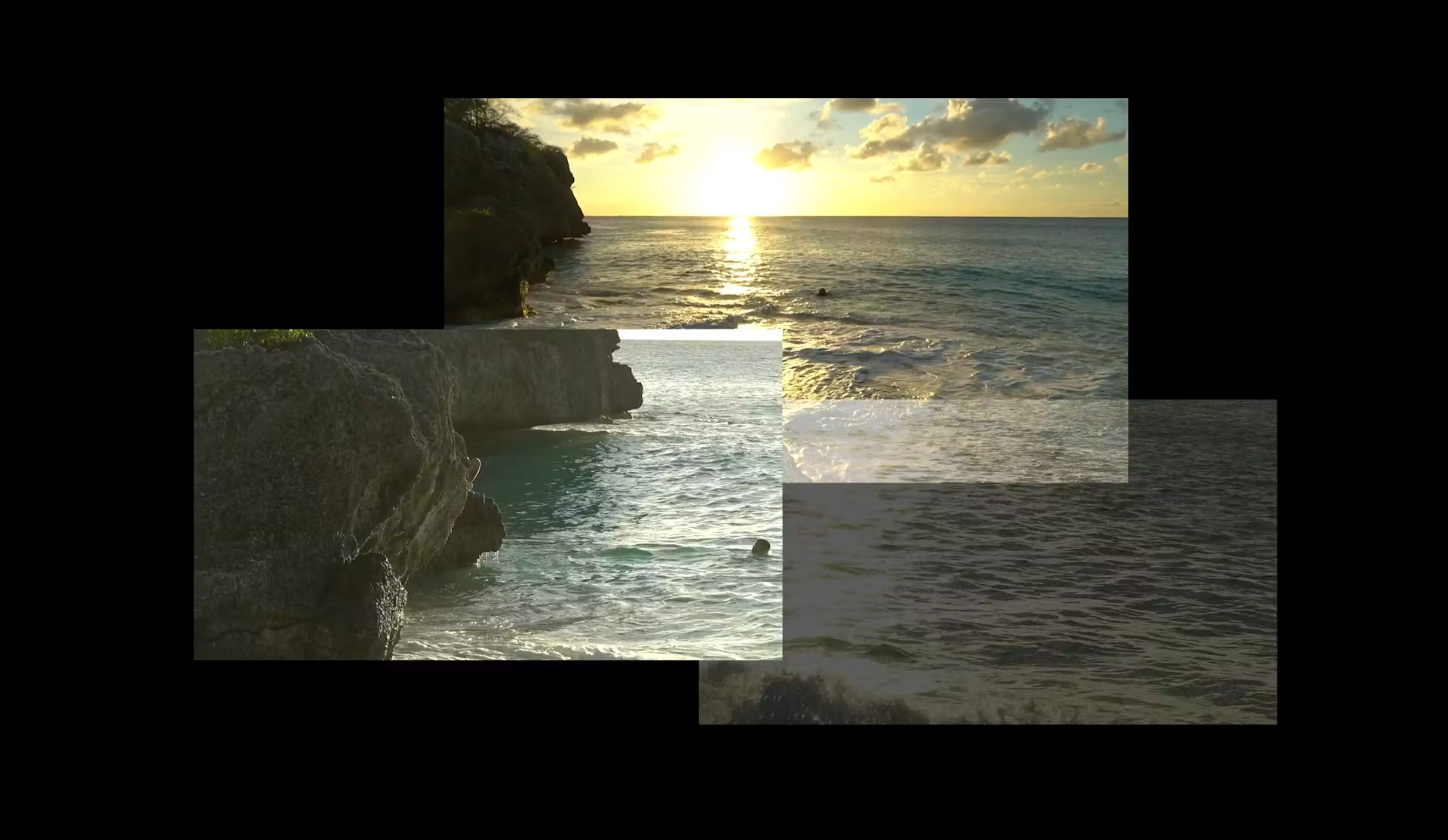
Cuarentena Volumes is abbreviated as cv: “these times might become a dent in the curriculum vitae, allowing to focus on the work itself.” Part of "Learning from COVID19: Reflections on knowledge-related commons and practices of self-organization amidst COVID19." Read more
Wochenplan
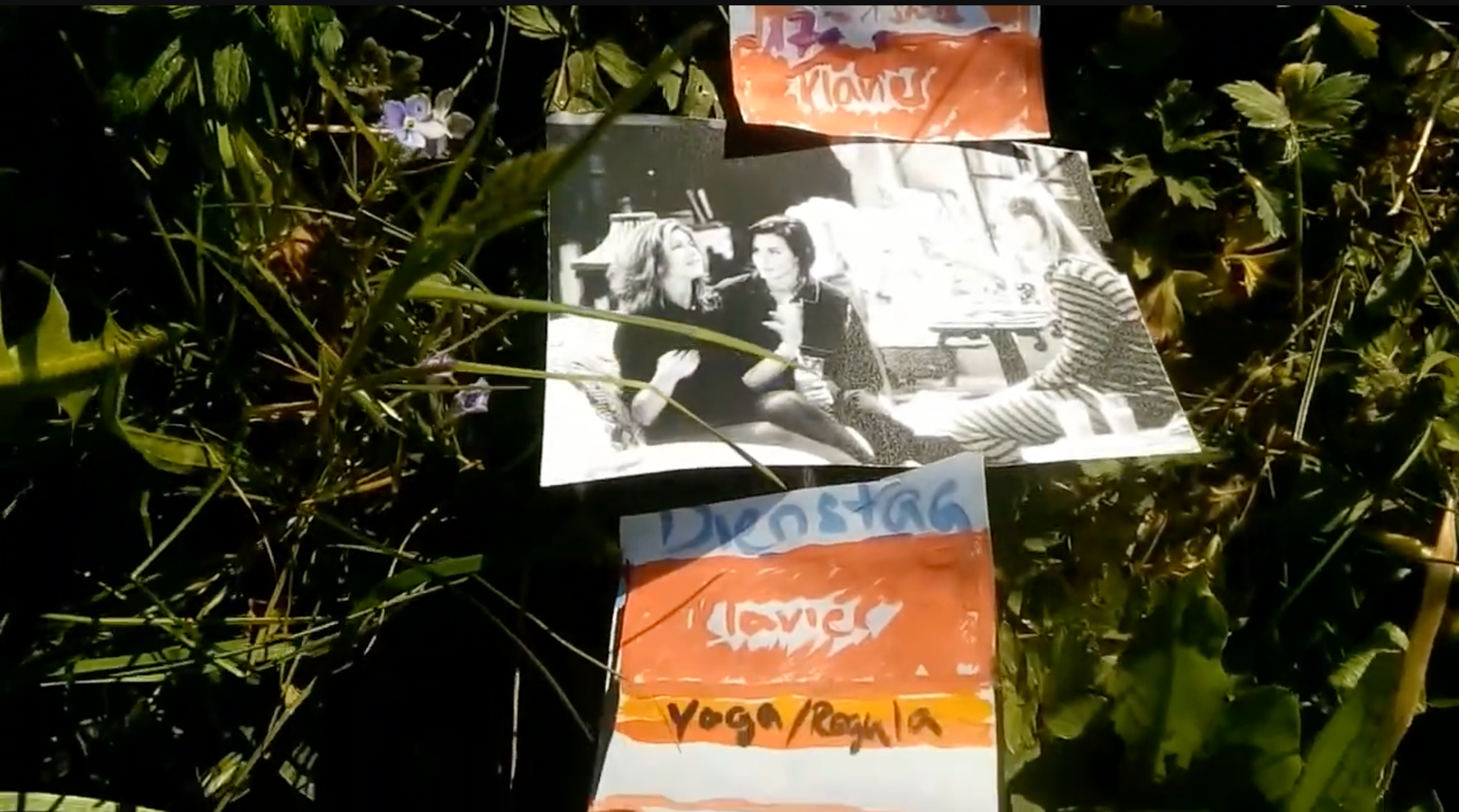
A short video that shows the ways in which Rieger organised her activities into weekly schedules in order to maintain her singing practice as well as her social life. Part of "Learning from COVID19: Reflections on knowledge-related commons and practices of self-organization amidst COVID19." Read more
